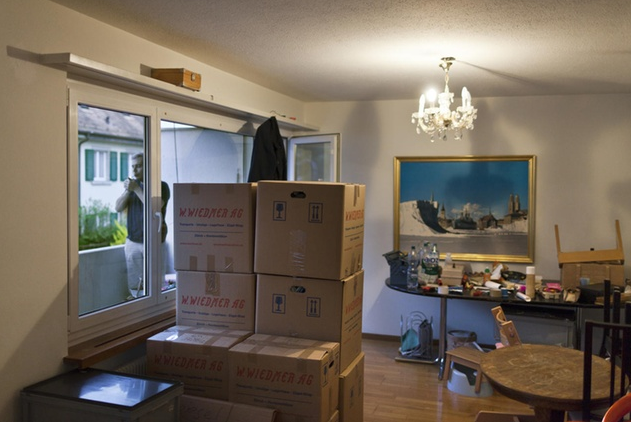Swiss lawmakers have been tasked with getting the new furniture to fit into the financial and corporate landscape. (© Keystone / Gaetan Bally) The Swiss parliament will soon get to grips with merging the current financial system with new blockchain architecture. This is a bit like refitting your whole house to make sure the swanky new furniture and fittings blend in. Switzerland has deliberately chosen to not to tear the whole house down and build it again in a new style. But the structure still needs a major re-fit by amending banking, corporate and financial infrastructure laws. At present, the new kitchen cupboards don’t fit, the refrigerator door keeps banging against the hob and the chaise lounge blocks the fire escape. What good are digital shares if they
Topics:
Matthew Allen considers the following as important: 6a.) Bitcoin&Blockchain, Featured, newsletter, Sci & Tech, Sci & Tech
This could be interesting, too:
Nachrichten Ticker - www.finanzen.ch writes Die Performance der Kryptowährungen in KW 9: Das hat sich bei Bitcoin, Ether & Co. getan
Nachrichten Ticker - www.finanzen.ch writes Wer verbirgt sich hinter der Ethereum-Technologie?
Martin Hartmann writes Eine Analyse nach den Lehren von Milton Friedman
Marc Chandler writes March 2025 Monthly

Swiss lawmakers have been tasked with getting the new furniture to fit into the financial and corporate landscape. (© Keystone / Gaetan Bally)
The Swiss parliament will soon get to grips with merging the current financial system with new blockchain architecture. This is a bit like refitting your whole house to make sure the swanky new furniture and fittings blend in.
Switzerland has deliberately chosen to not to tear the whole house down and build it again in a new style. But the structure still needs a major re-fit by amending banking, corporate and financial infrastructure laws.
At present, the new kitchen cupboards don’t fit, the refrigerator door keeps banging against the hob and the chaise lounge blocks the fire escape.
What good are digital shares if they can’t be sold, a new system of book keeping that can’t be read or an alternative style of stock exchange that can’t trade? Why should people invest into all of this if they can’t be sure of retrieving their assets in the event of a bankruptcy?
Next year, lawmakers will decide on how to remodel the corporate and financial system to accommodate Distributed Ledger Technology (DLT). The blockchain sector has largely applauded the government’s proposals. This includes the growing number of firms that store cryptocurrencies for clients. At least four old military bunkers in the Alps have been converted into bitcoin vaults.
But it remains to be seen if their applause will be matched by parliament. And all of this may take some time – perhaps a couple of years, according to some observers. Other countries are also busy amending laws. The EU plans to make it it legal for banks sell and store cryptocurrenciesexternal link – an amendment that Germany has been quick to act on.
In the meantime, the industry is busily erecting self-regulatory codes of conduct and formulating legal theories for converting traditional financial assets into blockchain-friendly digital clones.
The likes of the Swiss Blockchain Federationexternal link and the Capital Markets and Technology Associationexternal link insist that companies do not have to wait for the laws to be amended before issuing digital shares. In fact, some companies have done this already in Switzerland while a financial consortium has proved that ownership rights can be transferred.
On my radar:
The Crypto Valley Association, the first industry organization of its kind in Switzerland, is spreading its wings from its base in canton Zug by officially launching operations in the French-speaking part of the country. One primary focus of activities is education and it’s becoming hard to spot a Swiss university that does not offer some sort of DLT course on its curriculum.
Switzerland launched a new category of Fintech banking license to much fanfare at the start of this year. But so far none have been awarded by the financial regulator. I’m told that at least four companies have applied for the license. I’ll be asking: “Why the hold up”?
Tags: Featured,newsletter,Sci & Tech
